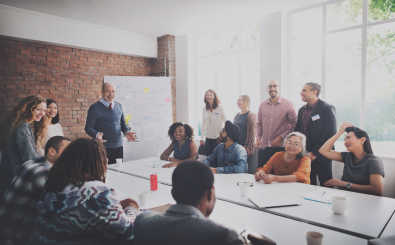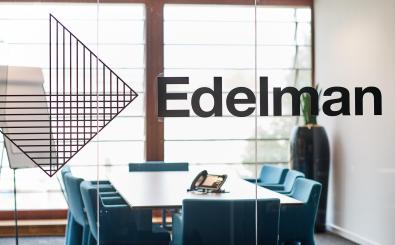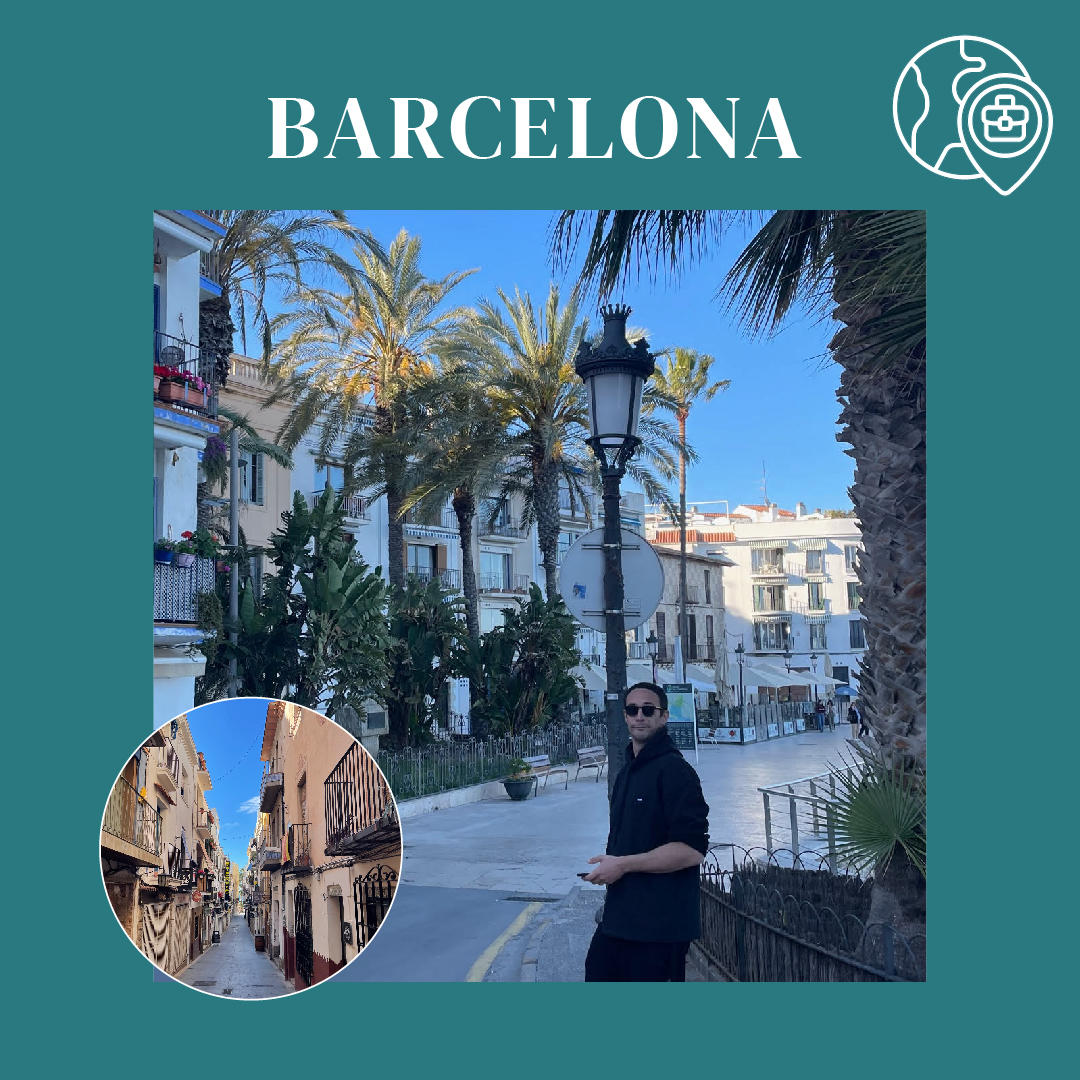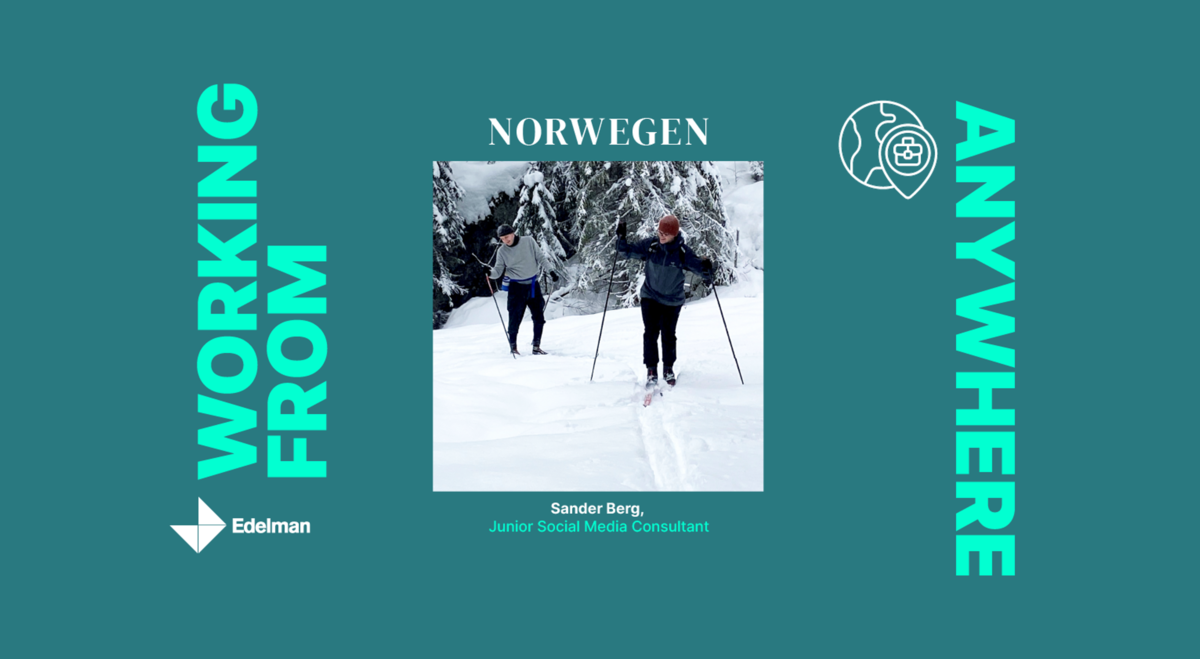We asked Ben Elias, Executive Director of Strategic Planning, in a short interview about his experiences, the challenges and personal fun facts about his time in the course of "Working from Anywhere" in Barcelona/ Sitges.
Why did you choose Sitges, Spain?
Ben: In short: Convenience. The longer explanation: My wife and I were looking to live near a big city, but not right in the center. At the same time, we wanted a bit of sunshine as well as a touristically well-developed area so that we could satisfy all our everyday needs with as little effort as possible. After a round of dilettante Google research, we concluded: Sitges, just outside Barcelona, was just the right place and not overrun by tourists thanks to the favorable timing.
How long was your stay?
4 weeks. With two short weeks, thanks to the long Easter weekend.
What does a typical (working) day look like for you?
Get up at 6 am. Yoga. Walk on the beach. Pick up fresh fruit from the market, briefly read the FT and Economist ... Oh no.... Sorry... Made a mistake.
In the morning at about 8.15 a.m. I fall out of bed well-rested, go to the café, check my emails on my work cell phone, plan the day a bit, drink a huge cappuccino and slowly start my day. If there is anything left to organize (internal coordination meetings, short resource planning or similar): Get it done quickly before the projects catch up with you.
In the morning I mainly focused on the project 'doing' tasks, so that I had a clear mind for more complex issues in the afternoon. This is definitely a habit I plan to keep.
Due to the slightly shifted eating schedule (restaurants did not open until 7:30pm in most cases), my food intake adjusted a bit as well: A late breakfast, a late lunch (preferably in the sun at a restaurant around the corner) and a later dinner structured the day in such a way that after dinner it was possible to slowly move towards bed without a guilty conscience.
What were the challenges, what were the highlights?
Challenges were the absolute overabundance of restaurants (#firstworldproblems, I know), the good weather (18-22 degrees Celsius, 8-11 degrees at night, slightly windy, pleasantly cool in the shade) as well as an abundance of dogs, all of whom were very cuddly.
What I mean is that challenges of a professional nature were few and far between. Of course, there was the odd workshop or event that would have been nice to attend in person, but fortunately I was still able to participate in digital form.
My highlight was the everyday implicit request from my environment to do something 'different'. With new environments and opportunities, my brain seemed to be forced to consider other solutions, explore other meeting dynamics, and not let some things get so close. Theoretically, there's nothing stopping you from implementing that in your everyday life in Germany as well, but a little external jump-start helps every now and then.
What does it mean for you to have the opportunity to work from somewhere completely different?
A new perspective on the definition of 'everyday life'. I've been working in agencies for about 15 years and have always been an office type. Daily interaction with colleagues (in arguments, in unison, in meetings, in coffee machine discussions, ...) is an integral part of a fulfilling workday for me.
The slightly different perspective makes you appreciate even more how much the office routine gives you. Nevertheless, it also showed me that you can positively instrumentalize an external geographic change for a better work result. Hopefully, I will be able to further optimize the exact gear shift for myself in the future (see below).
What tips do you have for colleagues who also want to use the Working from Anywhere option or are considering doing so?
- Stable wifi connection
- Make sure that everyday needs (shopping, etc.) are not too strenuous to satisfy.
Try it. It might be good for you.
Would you do it again? If so, what would you do differently?
I would definitely do the whole thing again. A core consideration would be to shorten the time but do it several times a year.
The individually perceived 'pleasure' gain/value is highest in the first two weeks. Since perceived changes/improvements always have a narrower frame of reference, one has only marginal gains after a certain period of time. Lunch on the beach becomes something 'normal' once you have done it three times. In my case, this effect set in after about 2 weeks. For others, of course, this period may be longer or shorter.
Otherwise: The choice of location was perfect. The choice of apartment was excellent. The only drawback: the missing dishwasher.
Is there a fun fact?
My wife and I don't have blinds in Cologne. In Sitges we had some. First order of business when we get back: Buy blinds.



